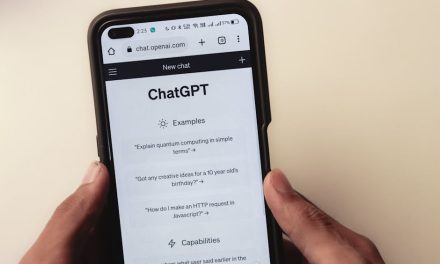Table of Contents
“Unlocking the future of HR with AI insights from the industry’s top leaders.”
Introduction
“Unveiling AI: Insights from the 2024 HR Superstars Summit” offers a comprehensive look at the latest trends and developments in artificial intelligence within the field of human resources. This collection of insights and perspectives from industry leaders provides valuable information for HR professionals looking to leverage AI technology in their organizations.
Advancements in AI Technology in HR

The 2024 HR Superstars Summit brought together some of the brightest minds in the field of human resources to discuss the latest advancements in AI technology. The event provided a platform for industry leaders to share their insights and experiences with implementing AI solutions in HR processes. From recruitment and onboarding to performance management and employee engagement, AI is revolutionizing the way HR professionals operate.
One of the key takeaways from the summit was the importance of leveraging AI to streamline recruitment processes. With the help of AI-powered tools, HR professionals can sift through large volumes of resumes in a fraction of the time it would take to do so manually. These tools use algorithms to identify top candidates based on specific criteria set by the hiring manager, saving time and resources while ensuring a more efficient recruitment process.
In addition to recruitment, AI is also being used to enhance the onboarding experience for new employees. By utilizing chatbots and virtual assistants, companies can provide personalized onboarding experiences that guide new hires through the necessary paperwork, training modules, and introductions to key team members. This not only helps new employees feel more welcome and supported but also frees up HR professionals to focus on more strategic initiatives.
Performance management is another area where AI is making a significant impact. Traditional performance reviews are often time-consuming and subjective, leading to biased evaluations and inconsistent feedback. AI-powered tools, on the other hand, can analyze performance data in real-time, providing objective insights into employee performance and identifying areas for improvement. This data-driven approach to performance management not only helps employees understand their strengths and weaknesses but also enables HR professionals to make more informed decisions about promotions, training opportunities, and succession planning.
Employee engagement is a critical factor in driving organizational success, and AI is playing a key role in helping companies better understand and improve employee engagement levels. By analyzing data from employee surveys, social media interactions, and other sources, AI can identify trends and patterns that indicate how engaged employees are with their work and the company as a whole. Armed with this information, HR professionals can develop targeted strategies to boost engagement levels, such as implementing recognition programs, offering professional development opportunities, or improving communication channels.
As AI continues to evolve and become more sophisticated, the possibilities for its application in HR are virtually limitless. From predictive analytics that forecast future workforce trends to sentiment analysis that gauges employee morale, AI has the potential to revolutionize the way HR professionals operate. However, it’s important for companies to approach AI implementation with caution and ensure that ethical considerations are taken into account.
In conclusion, the 2024 HR Superstars Summit shed light on the transformative power of AI in the field of human resources. By leveraging AI technology, HR professionals can streamline recruitment processes, enhance the onboarding experience, improve performance management, and boost employee engagement. As AI continues to advance, it will be crucial for companies to stay abreast of the latest developments and incorporate AI solutions into their HR strategies to remain competitive in the ever-evolving business landscape.
Impact of AI on Recruitment and Talent Management
The 2024 HR Superstars Summit brought together industry leaders and experts to discuss the latest trends and innovations in human resources. One of the key topics of discussion was the impact of artificial intelligence (AI) on recruitment and talent management. As AI continues to revolutionize the way organizations attract, hire, and retain top talent, it is crucial for HR professionals to stay informed and adapt to these changes.
AI has already made significant strides in the recruitment process, with many companies using AI-powered tools to streamline candidate sourcing, screening, and selection. These tools can analyze resumes, assess candidates’ skills and qualifications, and even conduct initial interviews. By automating these tasks, AI can help HR professionals save time and resources, allowing them to focus on more strategic aspects of talent management.
However, the rise of AI in recruitment also raises concerns about bias and discrimination. AI algorithms are only as unbiased as the data they are trained on, and if that data is skewed or incomplete, it can lead to discriminatory outcomes. HR professionals must be vigilant in ensuring that AI tools are used ethically and responsibly, and that they do not perpetuate existing biases in the hiring process.
Despite these challenges, AI has the potential to revolutionize talent management by providing valuable insights and predictive analytics. By analyzing large volumes of data, AI can identify patterns and trends that may not be apparent to human recruiters. This can help organizations make more informed decisions about talent acquisition, development, and retention, ultimately leading to a more diverse and inclusive workforce.
At the HR Superstars Summit, several speakers shared their experiences with implementing AI in recruitment and talent management. One company reported a significant increase in the diversity of its candidate pool after using AI-powered tools to remove bias from job postings and screening processes. Another organization saw a dramatic improvement in employee retention rates after using AI to identify factors that contribute to turnover and develop targeted retention strategies.
These success stories highlight the potential of AI to transform HR practices and drive business outcomes. By leveraging AI technologies, organizations can gain a competitive edge in attracting and retaining top talent, improving employee engagement and productivity, and ultimately achieving their strategic goals.
As AI continues to evolve and become more sophisticated, HR professionals must stay informed about the latest developments and best practices in AI-powered recruitment and talent management. This may require investing in training and upskilling programs to ensure that HR teams have the knowledge and skills needed to effectively leverage AI tools.
In conclusion, the 2024 HR Superstars Summit provided valuable insights into the impact of AI on recruitment and talent management. While AI presents exciting opportunities to streamline processes, improve decision-making, and drive business results, it also poses challenges in terms of bias and ethical considerations. By staying informed, proactive, and ethical in their use of AI technologies, HR professionals can harness the power of AI to create a more diverse, inclusive, and high-performing workforce.
Ethical Considerations in AI Implementation in HR
The 2024 HR Superstars Summit brought together industry leaders and experts to discuss the latest trends and innovations in human resources. One of the key topics of discussion at the summit was the ethical considerations surrounding the implementation of artificial intelligence (AI) in HR practices. As AI continues to revolutionize the way organizations recruit, manage, and develop their workforce, it is crucial for HR professionals to consider the ethical implications of using AI in their daily operations.
One of the main concerns raised at the summit was the potential for AI to perpetuate bias and discrimination in the workplace. AI algorithms are only as unbiased as the data they are trained on, and if that data is biased, the AI system will produce biased results. This can have serious consequences for organizations, leading to discriminatory hiring practices, unequal opportunities for employees, and a lack of diversity and inclusion in the workplace.
To address this issue, HR professionals need to be vigilant in monitoring and auditing their AI systems to ensure they are not inadvertently perpetuating bias. This may involve regularly reviewing the data used to train the AI algorithms, testing the algorithms for bias, and implementing safeguards to prevent bias from influencing decision-making processes. Additionally, HR professionals should be transparent with employees about the use of AI in HR practices and provide avenues for recourse if they believe they have been unfairly treated by an AI system.
Another ethical consideration in AI implementation in HR is the potential for AI to infringe on employee privacy. AI systems can collect and analyze vast amounts of data about employees, including their performance, behavior, and personal information. While this data can be valuable for making informed HR decisions, it also raises concerns about employee privacy and data security.
HR professionals must ensure that they are collecting and using employee data in a transparent and ethical manner. This may involve obtaining explicit consent from employees before collecting their data, implementing robust data security measures to protect sensitive information, and limiting the use of AI to only those tasks that require it. HR professionals should also be mindful of the potential for AI to infringe on employee autonomy and dignity, and take steps to ensure that employees are not unfairly monitored or controlled by AI systems.
In addition to bias and privacy concerns, HR professionals at the summit also discussed the ethical implications of using AI to automate decision-making processes in HR. While AI can streamline and improve HR operations, it also raises questions about accountability and responsibility. If an AI system makes a decision that negatively impacts an employee, who is ultimately responsible for that decision? How can organizations ensure that AI systems are making fair and ethical decisions?
To address these concerns, HR professionals need to establish clear guidelines and protocols for using AI in decision-making processes. This may involve setting limits on the types of decisions that AI can make, providing oversight and review mechanisms to ensure that AI decisions are fair and unbiased, and holding individuals accountable for the decisions made by AI systems. HR professionals should also be prepared to intervene and override AI decisions when necessary to uphold ethical standards and protect employee rights.
In conclusion, the 2024 HR Superstars Summit shed light on the ethical considerations surrounding the implementation of AI in HR practices. While AI has the potential to revolutionize the way organizations manage their workforce, it also raises important questions about bias, privacy, and accountability. HR professionals must be proactive in addressing these ethical concerns and ensuring that AI is used in a responsible and ethical manner. By prioritizing ethics in AI implementation, organizations can build a more inclusive, fair, and transparent workplace for all employees.
Future Trends and Predictions for AI in HR
The 2024 HR Superstars Summit brought together some of the brightest minds in the field of human resources to discuss the latest trends and predictions for AI in HR. The event provided valuable insights into how artificial intelligence is shaping the future of HR practices and how organizations can leverage this technology to improve their talent management strategies.
One of the key takeaways from the summit was the increasing role of AI in recruitment and talent acquisition. With the rise of digital platforms and online job boards, organizations are inundated with a large volume of job applications. AI-powered recruitment tools can help streamline the hiring process by automatically screening resumes, identifying top candidates, and even conducting initial interviews. This not only saves time and resources for HR professionals but also ensures a more efficient and objective selection process.
Another area where AI is making a significant impact is in employee engagement and retention. By analyzing data from employee surveys, performance reviews, and other sources, AI algorithms can identify patterns and trends that may indicate potential issues with employee satisfaction or retention. This allows HR teams to proactively address these issues before they escalate, leading to higher employee morale and lower turnover rates.
AI is also revolutionizing the way organizations manage their workforce. By analyzing data on employee productivity, attendance, and performance, AI algorithms can help HR professionals identify areas for improvement and develop targeted interventions to enhance employee performance. This data-driven approach to workforce management can lead to more effective decision-making and ultimately improve organizational performance.
One of the most exciting developments in AI for HR is the use of predictive analytics to forecast future trends and outcomes. By analyzing historical data and identifying patterns, AI algorithms can help HR professionals predict which employees are most likely to leave the organization, which candidates are most likely to succeed in a particular role, and even which training programs are most effective in developing employee skills. This predictive capability can help organizations make more informed decisions and stay ahead of the curve in a rapidly changing business environment.
Despite the many benefits of AI in HR, there are also challenges and ethical considerations that organizations must address. One of the key concerns is the potential for bias in AI algorithms, which can inadvertently perpetuate discrimination and inequality in the workplace. HR professionals must be vigilant in monitoring and mitigating bias in AI systems to ensure fair and equitable treatment of all employees.
Overall, the 2024 HR Superstars Summit provided valuable insights into the future of AI in HR and how organizations can leverage this technology to improve their talent management practices. By embracing AI-powered tools and predictive analytics, HR professionals can enhance recruitment, employee engagement, and workforce management strategies to drive organizational success in the digital age. As AI continues to evolve and become more sophisticated, it is essential for HR professionals to stay informed and adapt their practices to harness the full potential of this transformative technology.
Q&A
1. What is the main focus of the 2024 HR Superstars Summit?
The main focus is on unveiling insights about AI in the HR industry.
2. Who are the key speakers at the summit?
The key speakers are industry experts and thought leaders in AI and HR.
3. What are some of the key takeaways from the summit?
Key takeaways include the impact of AI on HR processes, best practices for implementing AI in HR, and future trends in AI and HR.
4. How can HR professionals benefit from attending the summit?
HR professionals can gain valuable insights, network with industry experts, and stay ahead of the curve in leveraging AI for HR success.
Conclusion
The 2024 HR Superstars Summit provided valuable insights into the role of AI in human resources. The discussions and presentations highlighted the potential benefits and challenges of implementing AI in HR practices. Overall, the summit emphasized the importance of embracing AI technology while also being mindful of its impact on employees and the workplace.




